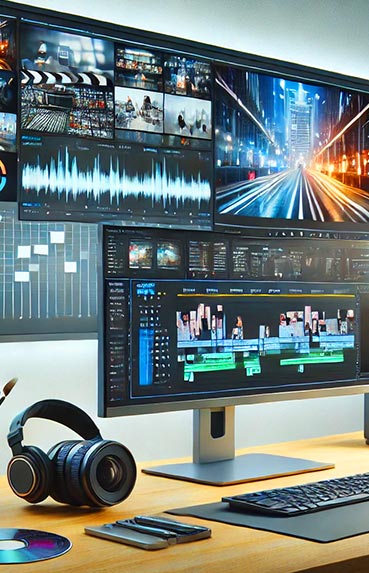In an increasingly digitalized world, the integration between e-commerce and physical stores is crucial for the success of any business. As more consumers turn to the web to search for products and services, companies must ensure their marketing strategies are equally effective both online and in the real world. For online stores that also have a physical presence, local SEO techniques are essential to capture customer attention on both fronts. This article explores various local SEO techniques that can help these stores improve their visibility and attract more customers.
Importance of Local SEO for Physical and Online Stores
Understanding Local SEO
Local SEO is a branch of search engine optimization that focuses on optimizing a website for searches with a geographic component. This is especially relevant for physical stores that want to attract customers from their local area. Local optimization includes practices like managing Google My Business listings, using local keywords, and obtaining local reviews.
Benefits of Integrating Local SEO in Online Stores
By implementing local SEO strategies, online stores with a physical presence can:
- Increase visibility in local searches, which boosts traffic both online and in the physical store.
- Build trust and credibility by displaying accurate and up-to-date information about the physical store.
- Facilitate purchasing decisions for consumers who prefer to research online before visiting a store.
Success Stories
Companies like Zara and Decathlon have successfully integrated local SEO into their marketing strategies. These brands not only optimize their online stores but also ensure that each physical location is correctly listed on local platforms, maximizing their reach and improving the customer experience.
Effective Local SEO Strategies
Google My Business Optimization
Google My Business (GMB) is an essential tool for any local business. Ensuring your business listing is optimized can significantly impact your visibility in local searches.
- Complete all information: Make sure the address, phone number, opening hours, and other relevant information are updated and accurate.
- Use high-quality images: Quality images can attract more customers and improve your business's perception.
- Post updates regularly: Use Google Posts to share news, promotions, or special events.
Local Keywords
Local keywords are crucial for improving a store's visibility in region-specific searches.
- Research local terms: Use tools like Google Keyword Planner to identify keywords that include your city or neighborhood's name.
- Include these keywords in your content: Ensure that product and service pages include these keywords to enhance their local relevance.
Reviews and Ratings
Reviews are a key factor in local SEO. Google and other search engines consider reviews when determining a local business's relevance and authority.
- Encourage positive reviews: Motivate satisfied customers to leave reviews on Google and other platforms.
- Respond to all reviews: Both positive and negative, to show that you value customer feedback.
Local Link Building
Local link building is another powerful technique to improve local SEO. Quality links from relevant local sites can enhance your domain authority and increase your visibility in local searches.
- Collaborate with other local businesses: Participate in events or sponsor activities in your community to get links from local websites.
- Write articles for local blogs: Offer relevant content for local blogs or publications in exchange for a link to your website.
A recent study revealed that 78% of local mobile searches result in an offline purchase, highlighting the importance of having a well-defined local SEO strategy.
Tools and Resources to Improve Local SEO
Keyword Analysis Tools
To optimize your local SEO efforts, it's crucial to use tools that help you identify the best local keywords. Some of the most recommended tools include:
- Google Keyword Planner: Allows you to identify local keywords with significant search volumes.
- SEMrush: Offers detailed analyses of keywords and their local performance.
Review Monitoring
Managing reviews is an essential component of local SEO. Tools that can help you monitor and respond to reviews include:
- ReviewTrackers: Allows you to track and analyze reviews from multiple platforms.
- Reputation.com: Helps manage online reputation and improve customer interaction.
Local Competition Analysis
Understanding what your local competitors are doing can give you a strategic advantage. Use tools like:
- SpyFu: Provides information on your competitors' keywords and strategies.
- Moz Local: Helps analyze and improve your local presence compared to the competition.
Advanced Tips for Local SEO
Local Events and Content Marketing
Organizing local events can be an excellent way to improve your local SEO and attract more customers to your physical store.
- Promote events on your website: Create specific pages for each event and optimize them with local keywords.
- Use social media: Announce and promote your events on platforms like Facebook and Instagram to reach a wider audience.
Mobile and Local Searches
With the increase in mobile searches, it's essential that your website is optimized for mobile devices. A responsive website not only improves user experience but is also an important ranking factor for Google.
- Optimize loading speed: A fast website enhances user experience and search engine ranking.
- Implement AMP (Accelerated Mobile Pages): To improve loading speed on mobile devices and increase visibility in mobile searches.
Integration of AI and Chatbots
Artificial intelligence and chatbots can enhance the customer experience while contributing to local SEO.
- Use chatbots for local inquiries: Allow customers to quickly get information about product availability, opening hours, and store location.
- Implement AI for personalization: Offer personalized recommendations based on the user's location and purchase history.
The Future of Local SEO
Emerging Trends
Local SEO is constantly evolving, and businesses must stay up-to-date with emerging trends to remain competitive. Some trends gaining popularity include:
- Voice searches: With the rise of virtual assistants like Siri and Alexa, optimizing for voice searches is becoming a necessity.
- Augmented reality (AR): Using AR to enhance the local shopping experience, allowing customers to "try" products before visiting the store.
Preparing for Change
To adapt to these trends, stores must:
- Regularly update their SEO strategies: Ensure they are aligned with best practices and the latest market trends.
- Invest in technology: Consider adopting new technologies that can enhance the customer experience and optimize local SEO.
In a commercial environment where competition is fierce, stores that effectively combine their local SEO strategies with a focus on customer experience and technological innovation will be better positioned for success.

















